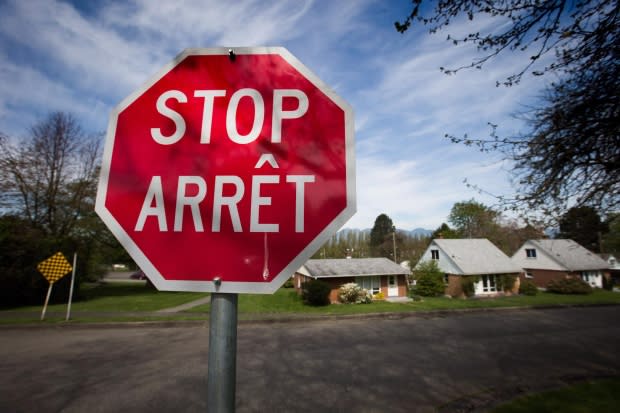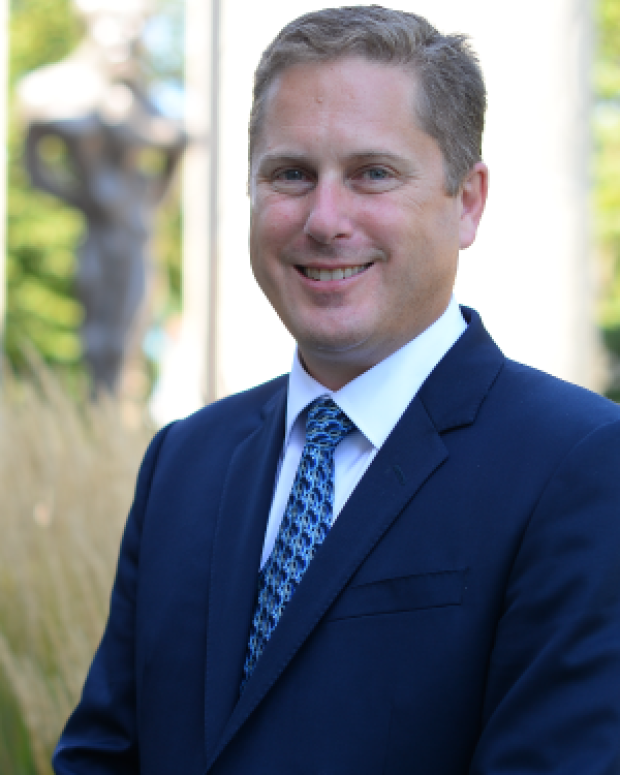Province struggles to recruit teachers as core French classes disappear from schools
Peter Dorrington credits core French with inspiring him to become bilingual — but the course is disappearing from some schools in Saskatchewan, since it is not a mandatory subject, according to the provincial government.
Still, Dorrington believes it's an important tool in cultivating and understanding diversity.
"It plants a seed where their curiosity has been piqued, and when they're 18 or 19 and decide they'd like to become bilingual because someone has encouraged them, the decision is theirs," said Dorrington, who is now the vice-president of academics and research at Winnipeg's Université de Saint-Boniface, and fully bilingual. He also comes from a francophone background.
Dorrington says since parents often make the decision for children to enrol in French immersion, it can be attractive to young people to choose French in the older grades, when it hasn't been chosen for them.
"Core French is a different commitment and it tends to be a strong one."
On the first day of school in Saskatchewan, some students found their regular core French classes swapped for other electives like phys ed, art, and Indigenous studies. These decisions are made at the school division and local level, often in consultation with School Community Councils, or SCCs.
'Learning another language is education for diversity'
Dorrington opposes school divisions in Saskatchewan making the decision to nix core French and replace it with other electives that aren't language-based.

"It's troubling because it's not so much about learning French. Learning another language is education for diversity," he said.
"It's probably one of the best ways to prepare young people to understand diversity, live it concretely, and throughout their lives and careers, be able to manage that."
Dorrington has taught many language classes. He sees them as intercultural relations training, rather than just learning the words.
Parents in Saskatchewan seem to be in agreement: French immersion enrolment is up 26 per cent in the last four years, according to the ministry of education. Core French may be losing steam, but immersion is more popular than ever.
'Room to grow' in teacher training
Shannon Bourbonnais has experience teaching both students and teachers, and believes the way teachers are instructed to teach French might be the issue.
"Teachers are asked to teach French and they may not necessarily even speak the language so that's a bit of a disadvantage," she said.
"I think we still have room to grow in that domain."

Bourbonnais now runs her own French school in Vancouver.
"We have to assume not every teacher will be comfortable teaching French so we have to give them the tools to learn themselves how the language is best taught and how to teach it to the students."
Saskatchewan's ministry of education confirms Bourbonnais's experiences. For years, the province has struggled to recruit French teachers — both immersion and core.
"We have challenges in minority language and French as a second-language instruction," said Anne Marie Chevalier, the director of strategic policy at the ministry of education.
Teachers are asked to teach French and they may not necessarily even speak the language. - Shannon Bourbonnais, French teacher and trainer
She cites the increase in popularity of immersion as one reason.
"Retention and mobility are the other two factors that come into play."
The government has a bursary program for teachers that helps fund French-language development at francophone or bilingual secondary educational institutions in Canada.
Other than the bursary, though, there is no real plan to address the teacher shortage at the provincial level.
"The federal government has announced some funding to address the shortage of French-speaking teachers in Canada."
This federal government's official languages action plan specifies French-language education as a priority, including training French teachers.
The lack of a coherent plan to recruit and retain French teachers is troubling to Peter Dorrington
"We need a cohesive strategy to develop French teachers," he said, and he offers a solution for the coming years.
"All the teachers we need to respond to the teacher shortage are sitting in our classroom right now. They're in Grade 8 and Grade 9."

